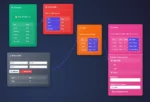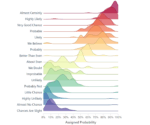
by tyler garrett | Apr 27, 2025 | Solutions
Data fuels modern enterprises—all successful decisions, innovations, and strategic moves begin with reliable, accurate data. However, ensuring data quality has evolved into one of the greatest challenges faced by organizations today. With the rise in data complexity and volume, executives and decision-makers must adopt precise strategies and robust frameworks to validate, test, and ensure data quality at scale. Choosing the right data testing framework significantly impacts analytics initiatives, machine learning models, and company-wide innovation projects. As technical strategists and thought leaders in data analytics and innovation, we understand the importance of clarity and confidence in your framework decisions. In this comprehensive comparison guide, we’ll unpack the popular data quality testing frameworks, break down their strengths and weaknesses, and serve as your technology compass. Let’s dive into the world of data quality testing to help you make informed, strategic decisions.
Understanding the Importance of Data Quality Testing
Data quality testing isn’t merely a technical detail—it’s a critical strategic asset. At the heart of every successful analytics initiative lies high-quality data, acting as a foundation for trust, accuracy, and reproducibility in decision-making processes. Poor data quality, such as duplicates, missing values, inaccuracies, inconsistencies, or outdated information, can significantly hinder your organization’s ability to leverage advanced analytics, artificial intelligence, and even basic reporting accurately.
Consider a financial services firm relying on real-time data to identify potential fraud. Without robust data quality frameworks in place, inaccuracies or anomalies can undermine the entire detection system—allowing risky transactions to slip through unnoticed or worse, flag innocent activities mistakenly. Furthermore, unreliable data quality often creates hidden “data silos,” limiting information sharing and slowing down operations. To delve deeper into recognizing these critical issues in your organization, refer to our guide on how to spot data silos holding your business back.
With the explosion of big data sources, cloud warehouses, real-time data streaming, and machine learning solutions, investing in the most effective testing framework has never been more essential. The right framework can not only protect operational efficiency but provide leadership teams with reliable analytics that drive profitable, confident strategic moves.
Comparing the Leading Data Quality Testing Frameworks
Great Expectations: Comprehensive Validation for Data Teams
Great Expectations is becoming a household name in advanced data quality management. Using declarative “expectations,” this open-source Python library offers substantial flexibility, helping teams clearly define what high-quality data looks like. Its benefits are significant for data engineers, analysts, and stakeholders alike. You can easily integrate Great Expectations into your modern data stack, leveraging robust integration capabilities that extend compatibility to popular platforms like Airflow, dbt, Snowflake, and Databricks.
The framework also encourages rigorous testing through standardized data profiling, which helps engineers understand existing data quality patterns. Additionally, teams benefit from its user-friendly documentation processes and automated data validation pipelines, enabling greater organizational alignment around data expectations. We’ve witnessed clients quickly transform data confidence through Great Expectations—driving innovation, analytics, and artificial intelligence initiatives forward strategically and successfully.
However, as the framework requires a moderate-level Python proficiency, it can be somewhat limiting for teams without strong technical capabilities. Smooth adoption typically requires experienced software engineers trained in Python and data analytics. For help identifying skilled engineers who can rapidly provide strategic technical solutions, check out our insights on trusting AI for vetting and discovering the right software engineers.
dbt data-tests: Effortless Integration With Your Modern Data Stack
dbt (Data Build Tool) has risen quickly to prominence within ambitious data teams, known widely for its SQL-based automation framework and ease of use. Maneuvering seamlessly within the modern data pipeline, dbt’s built-in data-tests allow data teams to write standard SQL-based assertions about data integrity and quality. If your organization’s analytics strategy centers around SQL competence across your team, dbt testing is an attractive option for effortless integration.
Designed specifically for data transformation processes that use SQL, dbt tests can validate data freshness, data schema changes, relationships between tables, and common data quality rules such as uniqueness and null checks. The all-SQL environment simplifies participation beyond data engineers, bringing analysts and business decision-makers closer to technical teams. Enhance your team’s data-testing capabilities by understanding critical SQL functions through our guide to harnessing aggregate functions in SQL.
The downside with dbt testing is limited complexity handling compared to pure coding libraries. It is ideal for less complex data quality tests but can be cumbersome if intricate logic or broader data validation logic is needed. If complex data validation is essential, consider pairing dbt with other testing frameworks to fill gaps and achieve more comprehensive quality coverage.
Deequ: Large-Scale Data Testing for Big Data and Streaming
Built by Amazon Web Services, Deequ is a versatile and powerful data quality library that specializes in big data and large-scale streaming environments. Skyrocketing volumes of real-time analytics streams require highly efficient validation and quality tracking. Deequ integrates smoothly with distributed computing platforms, empowering data engineers to regularly run lightweight yet powerful quality analysis during large-scale data processing frameworks such as Apache Spark.
Deequ’s modular design provides customizable data metrics, profiling, and systematic validation checks, making it highly appealing for organizations dealing with massive data volume and highly dynamic data streams. Teams can monitor and set thresholds around key data quality KPIs, empowering them to quickly address issues directly where insights are generated and consumed in real-time. To better understand the role of streaming data in your business objectives, explore our guide on the role of data streaming in stopping fraud before it happens.
On the other hand, Deequ demands proficient knowledge of AWS infrastructure, Apache Spark, and Scala or Python. Thus, it may pose entry barriers for teams not already leveraging cloud computing frameworks. Organizations looking to adopt wide-scale Deequ testing need experienced streaming data engineers to facilitate this strategically complex integration.
Choosing the Right Framework for Your Data Strategy
The appropriate data testing framework should strategically align with your organization’s data maturity, technology stack, long-term growth ambitions, and existing team talen. Consider your current technical stack, organizational complexity, skill availability, potential integrations with visualizations, and long-term scalability. Visualizing your data quality tests results effectively is equally crucial. Ensure that your data visualization strategies avoid common pitfalls by learning how to accurately represent data with appropriate scales and axes.
Evaluating the trade-offs discussed, Great Expectations might suit businesses needing flexibility, thorough documentation, and broad validations. Teams invested heavily in the modern data stack powered by SQL often benefit from dbt’s simplicity. Those dealing with high-volume, real-time analytics environments might prefer scalability provided by Deequ. Struggling with clarity on relating these technological decisions to your business needs? Our NodeJS consulting services can help map out technology choices best-fit for your strategic objectives.
Ultimately, the framework you select becomes instrumental in defining the data quality mindset, efficiency, and capacity for innovation within your teams. By deeply understanding these frameworks’ strengths and weaknesses, your enterprise can leverage data as a robust strategic asset more confidently.
Achieving excellent data quality assurance strategically positions you to take advantage of advanced analytical techniques and gain actionable insights from interactive visualizations. Discover how to unlock these benefits in our article: The Benefits of Interactive Data Visualization.

by tyler garrett | Apr 1, 2025 | Solutions
You’re exploring customer trends, finding sales opportunities, and fine-tuning your business strategy—but what if you’re making it harder than it needs to be? Most businesses today extensively rely on SQL for data management and analytics. However, many teams drown in needlessly complex queries that add no incremental value. These labyrinthine queries not only slow your database to a crawl but also bury valuable insights in a sea of complexity. And the worst part is, the smarter move has been hiding in plain sight. It’s time to clear the air and simplify your approach. Let us help you dissect the SQL overkill phenomenon and prove why a confident strategy based on simplicity is your best friend in data-driven decision-making.
The SQL Complexity Syndrome: Understanding the Real Issue
SQL is an incredibly powerful tool for businesses striving for data-driven analytics. It lets you slice through mountains of data to find precisely what you need—even if your business generates data daily by the terabytes. But here’s where problems begin. Over time, businesses unintentionally train themselves (and their teams) to create overly complicated queries. Rather than revisiting existing queries and optimizing them, analysts keep piling on new join statements, subqueries, CASE conditions, and window functions. Before long, these Frankenstein monster queries turn simple data retrieval into exhausting puzzle-solving exercises.
Complex SQL queries negatively affect resources by using excessive processing power and producing delayed database responses, especially in larger data warehouses. Additionally, complicated queries introduce increased potential for human error, blind spots in your analytics, and reduced transparency for business stakeholders. Decision-makers, not always SQL experts, face uncertainty, unsure about query reliability and accuracy. Over-specializing in advanced SQL queries risks alienating your teammates and stakeholders from actively engaging with data insights.
At the heart of every query complexity syndrome is an underlying tendency to think “more complicated” equates to more accurate or advanced analytics. As a team of data strategists, we’ve seen many businesses fall into this trap until we helped guide them back toward a more effective, simpler path with data engineering consulting services.
The Hidden Cost of Over-Complication in SQL Queries
Every additional JOIN or nested subquery you write comes at a cost. The performance cost is immediate: lengthy execution times, heavy CPU utilization, and increasing resource demands that bottleneck critical data infrastructure. Businesses often find SQL queries accounting for major shares of total database compute costs, with excessive complexity multiplying expenses exponentially. Beyond computational costs, chronically complicated queries drain productivity, forcing valuable analyst time spent watching endlessly buffering query results.
Another cost is strategic. Over-complication breeds confusion that obscures strategic decision-making potential. Cluttering your analytics pipeline with overly complicated queries can prolong extracting clear, decision-ready insights. For example, if marketing teams consistently struggle with extracting basic segmentation insights from convoluted SQL queries, decision-making processes quickly stagnate. The intuitive, simple SQL queries that should allow instant access to insightful data become precious resources held hostage by technical complexity.
Furthermore, complexity hinders accessibility. The fewer team members who can understand queries, the greater your risk becomes. Complexity breeds reliance on individual SQL “gurus” within your company—risky bottlenecks vulnerable when key personnel change positions or leave. Rather than cultivating consistent, safe, easy access to data, complicated queries centralize skills within limited individuals and reduce your team’s ability to leverage data across areas of your business. Maintaining simplicity and clarity in your data analytics approach enables easier process integration and more accessible innovation.
The Simplicity Advantage: When Less SQL is More
A popular misconception is that complex solutions equal greater depth of analysis. Yet, data innovation is rarely about the complexity of the query—it’s about the clarity and precision of your insights. A simplified query strategy means fewer joins, fewer nested statements, and fewer manipulations that can muddy your analytical clarity. With streamlined queries, data access becomes faster, more efficient, and more robust. Easy-to-understand SQL queries empower your entire team, facilitating engagement among stakeholders who do not naturally gravitate toward complex SQL scripts.
One way we achieve simplified analytics strategies is by decoupling query intelligence from complexity via effective ETL (Extract, Transform, Load) processes. Properly implemented ETL allows complexities to be handled at the data preparation stage, providing analysts with a purified and simplified layer ready to query. Learn more about simplifying analytics through clear ETL strategies in our blog “The Role of ETL in Data Analytics and Business Intelligence.”
Moreover, by embracing modern approaches leveraging technologies like Node.js in data engineering, businesses gain novel ways to handle large-scale data processing before data reaches SQL engines. Read more about this approach in “Embracing Node.js: The Future of Data Engineering for Businesses.”
Addressing Query Complexity Through Modern Data Engineering
Reducing SQL complexity isn’t just about revising queries. It’s about rethinking your data pipeline and data engineering strategy entirely. Modern businesses increasingly recognize data engineering as the true foundation for robust analytics. Refining your data pipeline upstream, at the point of data preparation and transformation, greatly simplifies downstream queries. This approach separates heavy lifting operations in the analytics pipeline, leading to faster, cleaner, and less complicated SQL queries.
A carefully crafted data engineering strategy improves client-side analytics without sacrificing query insights and quality. By shifting complexity toward your data pipeline, organizations immediately achieve high-speed SQL query responses without sacrificing complexity-supported insights. Before long, complexity constraints are replaced by agile decision-making and quicker insight generation. A definitive resource for exploring modern data engineering practices can be found in our comprehensive guide “Big Data Technology: A Comprehensive Guide.”
Looking deeper into simplified, efficient SQL information management reveals numerous techniques, platforms, and practices businesses can adopt. From improving developer environments with better tooling options like Visual Studio Code (check our insights on why Mac or Windows environment matters) to reshaping data workflows around simplified but powerful frameworks, simplifying SQL is achievable—and incredibly rewarding.
Unlocking Data Innovation: Making SQL Simplicity Your Goal
Your business doesn’t want data complexity; what businesses truly desire is data effectiveness. Placing SQL simplicity at the center of your data analytics strategy transforms overly complicated queries into an accessible practice, empowering stakeholder engagement and decision confidence. Simplicity doesn’t limit you—instead, it liberates your analytics operations for faster innovation, reduced team burnout, clearer insights, and greater sustainability.
Reduce your query complexity and unlock new opportunities for your enterprise data strategy. Simplifying your data solutions through strategic approaches will provide immediate returns in efficiency, performance, and clarity. Our firm specializes in guiding enterprises through these innovations. Discover examples of success through simplified analytics solutions by exploring our article: “Unlocking the Power of Data: 5 Use Cases for Data-Driven Businesses.”
Ultimately, a simpler SQL practice delivers easier engagement and more powerful strategic results. Revise complexity, embrace clarity, and empower your enterprise data strategy to achieve sustained success in a rapidly evolving digital landscape.
Conclusion: Commit to Simplicity and Embrace Innovation
At Dev3lop, we see simplicity as the foundational element in executing data strategies. Complicated SQL queries create needless expenses, bottlenecks, and dependencies that hinder your enterprise data strategy. To reverse this efficiency drain, consider simplifying your queries, strategically simplify processes upstream through robust data engineering, and proactively leverage technology innovations fostering simplicity in analytics solutions.
When complexity diminishes, innovation skyrockets. Let’s streamline your SQL practice for faster insights, optimized use of resources, empowered stakeholder engagement, and data-driven excellence across your entire organization.

by tyler garrett | Feb 1, 2025 | Solutions
Choosing between grassroots consultancies and enterprise-level firms is a defining decision for organizations aiming to harness the full potential of their data capabilities. While the allure of household names in enterprise consulting often promises stability, grassroots consultancy firms offer bespoke and agile solutions, often driving innovative data practices more swiftly and effectively. Understanding these differences clearly is crucial for decision-makers who are eager to leverage cutting-edge analytics and data engineering methods to propel their businesses forward. In this detailed analysis, we’ll dive deeply into the inherent contrasts between grassroots consultancy and enterprise consultancy, and how these distinctions can impact your organization’s critical strategic outcomes.
Customization and Agility in Approach
One of the prominent distinctions between grassroots and enterprise consultancies lies in their ability to offer customized, agile solutions tailored to your unique business requirements. Grassroots consultancies typically have leaner teams that understand the importance of flexibility, making it easier for businesses to request tailored strategies specifically designed toward precise data-driven outcomes. With fewer bureaucratic challenges, grassroots partners are empowered to shift project scope as necessary. Enterprise consultancies, in contrast, tend to rely on standardized frameworks, established best practices, and fixed methodologies intended to suit a wide variety of industries. While this structure might initially appear beneficial, it often leads to inflexibility, making personalized adjustments cumbersome and time-consuming.
For instance, implementing innovative methods such as sending Sage API data to Google BigQuery or effectively using SQL Wildcards for efficient pattern matching requires a consultancy partner that can adapt quickly to evolving requirements or sudden technology changes. Grassroots consultancies have the advantage in these scenarios, incorporating specialized analytics techniques suited specifically to client demands, thereby accelerating innovation significantly.
Moreover, grassroots consultancy experts typically embrace continuous training to remain relevant—ensuring enhanced demand forecasting abilities through predictive analytics methodologies that enhance your internal decision-making capabilities.
Decision-Making Speed and Efficiency
Decision-making speed significantly influences the overall efficiency and success of any data analytics and engineering consulting engagement. The hierarchical nature of enterprise consulting firms can slow down decision processes significantly, as approvals and strategic adjustments often must travel through several management layers. Conversely, grassroots consultancies operate within flat organizational structures, enabling shorter decision-making chains, faster outcomes, and quicker project adaptations.
When seeking to enable real-time presence indicators in your apps or to implement fast-moving changes to data pipelines, the benefits offered by a grassroots consultancy cannot be overlooked. This agility leads to quicker outcomes and an accelerated innovation process, translating directly into cost savings and increased competitive advantage.
By working closely and directly with key decision-makers, grassroots consultancies bypass prolonged delays commonly associated with more corporate-like setups. Implementations like understanding how to split URL to columns efficiently or building integrations between cloud data environments can be completed with fewer internal obstacles, resulting in improved business agility.
Personalized Relationships and Expert Accessibility
The size and structure of grassroots consultancies pave the way for direct relationships between organizations and consulting experts, connecting your business closely with seasoned data engineers and analysts. Instead of interacting primarily with sales teams or intermediaries, businesses working with grassroots consultancies experience direct, ongoing engagement with highly skilled technical specialists who have firsthand knowledge of project goals and the nuances involved.
This personal interaction can profoundly impact your organization’s ability to adapt emerging innovations, such as enabling data-driven decision-making to leverage the power of data analysis in real-time. Personalized accessibility ensures transparent communication, speeds technical resolutions, mitigates risks, and fosters a deeply collaborative environment that enterprise consultancies rarely replicate due to their sheer size.
Having personalized expert insights on hand greatly expedites troubleshooting complex issues, such as identifying the most overrated tools in modern data engineering or refining business strategies based on precise, actionable data analytics insights. This direct accessibility can turn traditional barriers into opportunities and maximize your organization’s ability to leverage analytics successfully for informed decision-making.
Specialization and Innovation vs. Breadth and Market Reputation
Enterprise consulting firms possess robust market presence that frequently appeals to corporations seeking long-established reputations, reinforced credibility, and perceived stability. The brand recognition of enterprise-level consultancy can indeed deliver comfort regarding reliability and industry-standard approaches. As decision-makers evaluate potential consulting partners, reputation and size may seem intuitively safe. However, taking marketability as a proxy for effectiveness can sometimes overlook specialized skills required for modern data environments.
On the other end, grassroots consultancies possess the innovative edge, precisely because they’re built around unique niches with dedicated expertise in emerging analytic trends and creative technological solutions. Firms specializing deeply in fields such as data engineering consulting services inherently prioritize staying at the forefront of technology developments. As a result, they can rapidly implement novel solutions, offer powerful industry insights, and deliver potent strategies tailored directly to your business’s specific requirements.
While enterprise consultancies excel in breadth of solutions and scalability required for large-scale projects, grassroots consulting groups are uniquely positioned toward fueling innovation within your business intelligence operations. Leveraging grassroots consultancies ensures your projects remain infused with the latest techniques, facilitating innovation in real-time rather than relying solely on historically established practices and large-scale operational inertia.
Long-term Customer Focus and Partnership Mindset
Grassroots consultancies generally cultivate deeper, longer-term relationships with their clients compared to enterprise consultancies that frequently prioritize short-term revenue-focused engagements. Unlike large consulting firms often involved in a wider variety of simultaneous projects, grassroots firms inherently focus closely within their client base to ensure mutually beneficial outcomes and sustained business improvement.
Long-term partnership orientation is especially crucial when navigating complex environments, such as data analytics or complex engineering architectures. By understanding the value of your data analytics and unleashing essential business insights, closely functioning grassroots consultancies inherently aim towards sustainable, long-reaching business impacts.
A sustained partnership mindset translates to insights about your analytical processes that can lead to more accurate decision-making, enhanced predictive capability improvements, consistent performance enhancements, and continued growth. Additionally, grassroots consultancies are more inclined to recommend methods genuinely beneficial to your organization rather than simply relying upon standard, outsourced solutions. This approach builds trust, cultivates teamwork, and ensures ongoing intellectual synergy—key elements for businesses genuinely devoted to developing robust, resilient, and future-proof analytical environments.
Cost-Effectiveness and Return on Investment
Cost is inevitably a central consideration in deciding between enterprise and grassroots consultancies, as it significantly impacts your ROI. Enterprise consultancies generally carry higher overhead costs due to larger staff requirements, standardized operations, and established corporate structures. These higher costs frequently get transferred to clients through elevated service pricing.
In comparison, grassroots consultancy pricing structures are typically leaner and more transparent. Lower overheads, efficient operational management, and focused client-engagement strategies create a competitive pricing advantage that translates directly into cost savings and greater ROI. Transparent billing practices and customized packages allow businesses to allocate their budgets more effectively into data innovation projects rather than funding corporate overhead and layers of management.
Moreover, the innovative approach and specialized knowledge of grassroots consultancy teams can drive unique competitive advantages, positioning your business as a true industry leader in efficiently leveraging data and analytics. Tightened resource allocation and increased savings from partnering with cost-effective grassroots consultancy also provides greater agility in future project scaling and enables reinvestments towards innovation-driven growth.
Ultimately, decision-makers should consider the long-term strategic goals of their business, technology vision, and cost structure when choosing grassroots consultancy versus enterprise consultancy partners. Each organization must assess its specific needs and priorities, balancing specialized skills and rapid innovation potential against the scalable advantages and recognizable branding of enterprise consultancy providers.
If your organization seeks an adaptable, innovative, and cost-effective partner focused on specialized data analytical solutions and personalized customer engagement, exploring grassroots consultancies like Dev3lop may offer a significant strategic advantage. Visit our data engineering consulting services page to discover how you can leverage a data-driven approach toward sustained innovation and growth.
For more information, check out our data consulting services.
Related read: The most overrated tools in modern data engineering
Related read: Understanding the value of data analytics unleashing business insights
Related read: Split url to columns
Related read: Send sage api data to google bigquery
Related read: Enabling data driven decision making in 2023 leveraging the power of data analysis
Related read: Sql wildcards a guide to pattern matching in queries
Related read: Continuous learning and improvement enhancing demand forecasting with predictive analytics
Related read: Real time presence indicators to improve apps





















